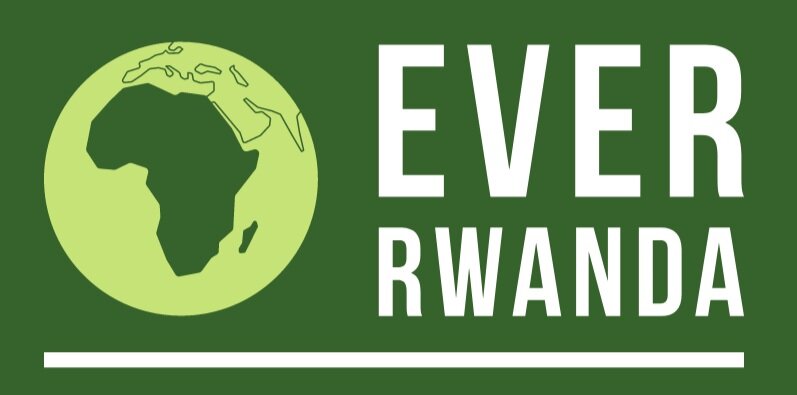As the recipient of a 2021 Lilley Fellowship, I have chosen to focus my project on the history, impact, and evolution of the Genocide Against the Tutsi in Rwanda. Through a series of essays, I explore the "stages" leading up to the genocide in Rwanda; the effectiveness of traditional, community-based gacaca courts in the aftermath of the genocide; and post-genocide restorative justice initiatives to promote truth telling, forgiveness, and reconciliation. Additionally, I have conducted a series of interviews of genocide survivors, witnesses, and others now living in the United States, Canada, and Rwanda. I am honored to present my interviews and preserve the incredible, inspiring, and true stories of these survivors of the genocide, as well as the reflections of others. This is EVER Rwanda.
ABOUT.
Only one generation ago, the country of Rwanda experienced one of the deadliest and swiftest genocides in history. In 1994, in the span of 100 days, approximately one million Rwandans were murdered. The majority of the victims were Tutsis, who were killed by Hutu extremists and the Interahamwe, a Rwandan militia backed by the government. Shockingly, many of the murders were committed by ordinary citizens. Tutsis were killed by their work colleagues, neighbors, friends, and even their own family members. As many survivors have remarked, though, the genocide did not happen overnight. Rather, there were numerous stages that preceded the onset of the killings, including dehumanization and discrimination against Tutsis.
Amazingly, after the Genocide Against the Tutsi, Rwanda was able to rebuild and reconcile under a new government, even adopting a unification policy so that all citizens are simply Rwandans, and public references to the ethnic designations of Hutu and Tutsi are forbidden. To administer justice and promote reconciliation, local community based gacaca courts were utilized. The gacaca court system prioritized truth telling and many perpetrators of the genocide apologized and were forgiven by the families of their victims. While the Rwanda government has been accused of being politically repressive and critical of those who oppose it, there nevertheless has been indisputable progress in achieving justice and reconciliation for some Rwandans. Today, Rwanda is an increasingly peaceful country that has had sustained economic growth, with one of the most rapidly growing economies in Africa. In the 27 years since the genocide, there has been no widespread violence and there is a distinct emphasis on community building.
In learning about the history of the Genocide Against the Tutsi, restorative jusice initiatives, and Rwanda’s transformation in the aftermath of the genocide, I became captivated by the stories of genocide survivors. I was inspired by their courage, resilience, and amazing capacity to forgive. In 2021, I was honored to be chosen as the recipient of a Lilley Fellowship, which awards research fellowships to students who exemplify academic curiosity, intellectual rigor, and scholarly passion. I chose to continue my research on Rwanda, and focus my project on the history and impact of the genocide. In connection with this project, I have been honored to interview Rwandan genocide survivors and witnesses now living in the United States, Canada, and Rwanda. Among others, I had the privilege of interviewing the following people:
Consolee Nishimwe, who survived the genocide as a fourteen year old along with her mother and sister, while her father and three brothers were tragically murdered;
Dr. Tharcisse Seminega, who survived the genocide along with his wife and five children, as they were aided by members of their Jehovah’s Witness community;
Michel Kayiranga, whose father, six brothers and sister were killed in the genocide, and who currently works as a federal investigator in Rwanda, including working to extradite perpetrators of the genocide back to Rwanda to face justice;
Aline Umutoni, who survived the genocide as a five year old daughter of a Hutu mother and a Tutsi father, while her father was tragically killed;
Carl Wilkens, who was the only American to remain in Rwanda during the genocide and was responsible for saving the lives of hundreds of Rwandans; and
Former Chief Justice Sam Rugege, who served as Chief Justice of the Supreme Court of Rwanda for eight years, oversaw judicial reforms, and participated in drafting the 2003 Rwandan Constitution, which provided for the protection of human rights.
I was awed by their stories of survival, courage, resilience, and reconciliation. As Ms. Nishimwe said, she chose to speak out so that the voices of those who were murdered in the genocide are not forgotten. She told me: “I want to make sure that those who are no longer here - their voices, their lives, their names . . . are alive. They were alive. They existed. My duty is to make sure that what happened is heard.” I am honored to share my essays and interviews of each of them, in the hope that the truth of their experiences and their reflections are preserved, and that others may learn from this tragic event in history.
I titled my project “EVER RWANDA” because I have personally come to believe that:
I would like to thank my faculty mentor for this project, my AP World History teacher Damon Kuzemka, for his valuable guidance and support. Thank you also to Max Kelly, who oversaw Episcopal Academy’s Lilley Fellowship Committee, and the other members of the Fellowship Committee, who supported my project over the past two years. Thank you to my Form Dean, Sam Willis, and Father Tim Gavin, who provided valuable encouragement and guidance. I am indebted to all of the historians and authors whose works I relied upon for my background research, as noted in the sources link. Finally, a most heartfelt thank you to Consolee Nishimwe, Dr. Tharcisse Seminega, Michel Kayiranga, Aline Umutoni, Carl Wilkens, and Justice Sam Rugege for their generosity of spirit, kindness, and willingness to share their incredible and inspiring stories and reflections with me.
ESSAYS.
INTERVIEWS.













